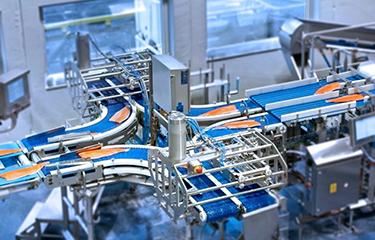Ålesund, Norway-based Hofseth International has its sites focused on greater penetration into European markets as it continues to develop its unique land-based salmon farm in an abandoned olivine mine.
Founded by Roger Hofseth, the company started out as a salmon processor in 2005 and has since become a major supplier of salmon to the U.S., and a salmon farmer in its own right. The company, Fredrik Wikeby of Hofseth told SeafoodSource, is now setting its sights on penetrating the European market with its salmon products – part of why the company attended Seafood Expo Global in Barcelona, Spain for the first time in April.
“We have been big [at Seafood Expo North America] in Boston for about eight years, and we have been involved for almost 10 years,” Wikeby said. “So ... we wanted to expand to this one.”
The companies first-time attendance, he said, was a “test run” for Hofseth to begin its attempts to make inroads to European customers.
“We are planning bigger stuff, but for now it’s just getting used to the area, and everything around the trade show,” Wikeby.
Hofseth Business Development Manager Nina Robekk told SeafoodSource said the company is currently focused on the U.S. retail space.
“In the U.S. we’re in retail, and also some restaurant chains – so mostly retail with some products for foodservice,” Robekk said. “In Europe, we are mostly into the retail chains in Germany and a bit in the U.K.”
Hofseth's debut appearance at Seafood Expo Global is an opportunity to expand the company’s markets beyond just the two countries in which it currently operates in Europe, she said.
The goal for Hofseth, according to Wikeby, is to secure a few large-scale European customers to move bigger volumes, rather than multiple smaller customers. He said to that end, it has a few advantages. Because of where it is situated in Norway, it has access to raw materials locally – both from its own farms and from other nearby operations.
“We are very close to the raw material,” Wikeby said. “So we don’t have to ship it half the world away and then process it, it’s basically pick it up and deliver it the same day – just get it straight to the factory.”
Amid global supply chain challenges, that is one of the factors that the company expects will give it an advantage as transport costs go up, he said.
“Things are really changing. We have kind of an advantage there, because internally we are not relying on international shipping to get material. Everything comes by truck,” Wikeby said.
Another avenue the company is working on is new product forms, Robekk said. One of those is a sliced salmon loin, sold frozen, which the company is positioning with the goal of tapping into convenience-oriented customers.
“You have [salmon loins] on boards in a beautifully designed box in the freezer, and then the consumer can just take out a board whenever [they] want one,” Robekk said.
The company plans to launch the product some time in June 2022, she said.
In addition to launching new products, Hofseth has been working to expand its salmon-farming capacity. According to Robekk, however, the company was struggling to acquire permits for new net-pen operations.
“In Norway, conventional farming is limited,” Robekk said. “So then you have to look at other options.”
As a result, Hofseth is continuing to work on its unconventional land-based salmon farm that will be built and operated inside a once-abandoned mine that abuts a fjord – a project the company has dubbed World Heritage Salmon. Roger Hofseth told SeafoodSource about his company's plans over a year ago, and the company plans to reach a 100,000-metric-ton production capacity.
“It’s basically land-based farming, inside a mountain. Which of course, protects it from the elements, and gives us water in perfect temperatures,” Wikeby said.
The mine’s proximity to a nearby fjord gives it access to deep ocean water, allowing the company to use a flow-through farming method.
“We pick up water from a constant depth where it’s a constant temperature,” Wikeby said. “The water we get is always the same temperature, so we don’t have to spend energy to adjust.”
Hofseth said his extensive experience in the salmon industry has given him valuable insight into navigating the vagaries of production, processing, and marketing, and is helping to propel the company toward his goal of becoming one of the largest fish-farming firms in the world.
Photo courtesy of Hofseth







